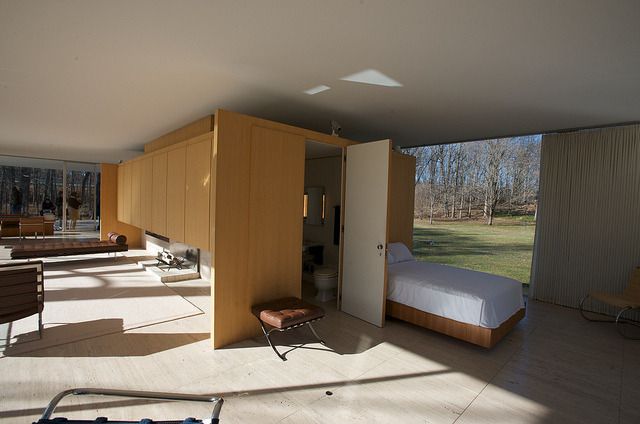
Vinyl siding prices depend on how much square footage you need to cover, as well as other factors. A house measuring 900 square feet with one master suite, two or four bathrooms, and a living room, kitchen, dining, and living areas will require different siding costs than a home measuring 2,000 square feet. A 1,500-square-foot home, on the other hand, will typically have two to three bedrooms, a kitchen, dining and living area, and only one or two full bathrooms.
To estimate the cost to replace your siding, you may use a calculator. First, measure the square footage of the house. You can determine how many squares you'll need by measuring the exterior walls' height and length. Divide this number by 100. Depending on which contractor you are working with, they may charge by square feet or linear feet.
A contractor installing the siding is often less costly than a DIY project. But if your goal is to replace the siding yourself you need to be clear about what you can expect. If you're looking for vinyl siding, it is essential to learn about the company as well as the material that was used in manufacturing the product. You can also assess the product's durability as well as its weather ratings. You may wish to order an additional 10% to ensure you have enough.

Fiber cement is a great option for exterior renovations. It is easy to maintain, fire-resistant, and water-resistant. It's easy to install and is available in a variety styles. It is more durable and long-lasting than other types.
It is important to discuss trim options with your contractor before you purchase vinyl siding. The cost of a project can be greatly affected by choosing the wrong trim. Soffits and fascia can be quite expensive so make sure to get the right trim. Trimming windows can also be expensive, so it is important to understand all options before you buy.
If you are not familiar with how to measure, you can get a siding quote from a local contractor. The cost of siding will vary according to the size and type of material used.
Vinyl siding installation costs can range between $7,500 and $32,500. This depends on how much material and labor is required. If you want to add windows, corners, and other features, then you will need more or less material. For houses with more corners, the siding needs to be installed more precisely. Additional trim may be required, which could significantly increase the cost of the job.

If you are remodeling your home, you should look into whether the materials are durable and whether they will withstand the climate in your region. Materials can crack, warp and melt which makes them not suitable for areas with colder climates. Premium vinyl is more durable and heavier than regular vinyl.
FAQ
How to quickly sell my home without having to pay realtor fee?
Start searching for buyers immediately if you're looking to sell your house fast. This means that you should be willing to accept whatever price the buyer offers. However, if you wait too long, then you will probably lose out on some potential buyers.
How much does it cost for a house to be renovated?
Renovations are usually between $5,000 and $50,000. Most homeowners spend between $10,000-$20,000 on renovations.
Are there ways to save money on home renovations?
By doing all the work yourself, you can save money. Reduce the number and frequency of people you hire for the renovation. You can also find ways to reduce costs for materials during the renovation.
How Much Does It Cost to Renovate A House
The type of material, the project size and the complexity of renovations will all impact the cost. Some materials such as wood require additional tools like saws and drills while others like steel do not. The price of renovations depends on whether you hire a contractor to do the job or if you are willing to do the work yourself.
Home improvements can cost anywhere from $1,000 to $10,000 on average. The average cost of home improvement projects would be between $5,000 and $25,000. You could also spend as much as $100,000 if you do it all yourself.
It is important that you are aware of the many factors that affect the final price of renovations. The type of material used (e.g. They include the type of material used (e.g., brick vs. concrete), the size and number of workers involved, as well as the length of each project. You must always keep these factors in mind when estimating the total cost of renovation.
Do you prefer to do walls or floors first?
It is the best way to begin any project. It is crucial to plan how you'll use the space, what people will use it for, and why. This will help determine if flooring or wall coverings are best.
You may want to lay flooring before you create an open-plan kitchen/living space. You could also consider wall coverings for privacy if this is the space you are looking to create.
Can you live in your house while it's being renovated?
Yes, I can live in a house while renovating it
Is it possible to live in a house with renovations going on? The time taken to complete the work will impact the answer. If the renovation lasts less then two months, then it is possible to live in your home while it is being constructed. You cannot live in your house while the renovation process is ongoing if it lasts more than two years.
The reason why you should not live in your home when there is a major construction project going on is because you might get hurt or even killed due to falling objects from the building site. There is also the possibility of dust and noise pollution from the heavy machinery at the job site.
This is particularly true if you live on a multi-story home. In such cases, vibrations and noises from construction workers may cause irreparable damage to your property.
You'll also need to cope with the inconvenience of living in temporary housing while your house is being renovated. This means that your home won't provide all the amenities you need.
As an example, your washer and dryer will be out of commission while they are being repaired. The workers will make loud banging noises, paint fumes, and chemicals obstruct your ability to use your dryer and washing machine.
All these things can lead to anxiety and stress in your family. You should plan ahead to avoid feeling overwhelmed by this situation.
It is important to research before you start renovating your house. This will help you avoid costly mistakes down the road.
You can also consider professional advice from a trusted contractor to ensure smooth running of your project.
Statistics
- Most lenders will lend you up to 75% or 80% of the appraised value of your home, but some will go higher. (kiplinger.com)
- A final payment of, say, 5% to 10% will be due when the space is livable and usable (your contract probably will say "substantial completion"). (kiplinger.com)
- ‘The potential added value of a loft conversion, which could create an extra bedroom and ensuite, could be as much as 20 per cent and 15 per cent for a garage conversion.' (realhomes.com)
- They'll usually lend up to 90% of your home's "as-completed" value, but no more than $424,100 in most locales or $636,150 in high-cost areas. (kiplinger.com)
- According to the National Association of the Remodeling Industry's 2019 remodeling impact report , realtors estimate that homeowners can recover 59% of the cost of a complete kitchen renovation if they sell their home. (bhg.com)
External Links
How To
How do you renovate an old house?
First, you need to decide what kind of renovation you want. This could be anything from updating your kitchen appliances to completely renovating the house.
Once you decide what kind of renovations you want, you will need to calculate how much money is available. You may find that your funds are not sufficient to cover the whole project. If this happens, you might need to make difficult decisions about which areas in your home you can afford to upgrade and which ones to keep the current budget.
You need to be sure that before you do any renovations you are aware of the following things. It is important to get all permits necessary for your job. Also, check to see if you need planning permission in order to do certain types work. For example, if you plan to add extensions to your home, you might need to apply for building consent.
Before you begin to renovate your house, make sure to check with the local authority to confirm that they do not require additional permits. Make sure you check whether each section of the house needs to be given planning permission. If you plan to do major renovations, such as replacing a roof, it is advisable to consult your insurance provider to ensure that you have sufficient coverage.
The next step after getting all the permits you need is to choose the right tools and materials for the job. There are many choices available so make sure to do your research thoroughly. The most popular items used in renovation projects are paint, wallpaper paste and flooring.
You should consider the product's overall quality when shopping for these items. Quality products last longer than cheaper products and are less expensive. When you are buying any item, ensure that you only purchase what is necessary for the job. Don't buy too many because you could end up wasting precious resources and having to discard large quantities of material. Instead, purchase only what you need.
Once you have chosen the materials, it is time to plan where you will store them while you work on the property. If you're remodeling a large portion of the house, you may need to rent storage space to store your materials until you're ready for them to be returned inside. Alternatively, you could ask family members or friends to help you move all the items around.